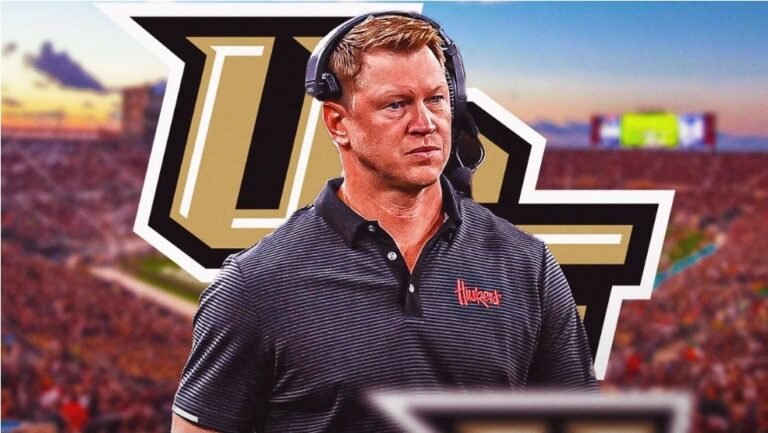In a stunning and bold move, the University of Central Florida (UCF) football program reached into its past, bringing back the one figure who had propelled them to national relevance: Scott Frost. The announcement, made early one December morning, sent shockwaves through the college football world. The Knights were returning to their roots, reigniting the flames of the magical season of 2017 when Frost had guided the team to an undefeated record and a controversial claim to the national title.
Frost’s tenure at UCF had been a meteoric rise. In just two seasons, he transformed the Knights from an afterthought in the American Athletic Conference to a feared powerhouse in the college football landscape. His innovative offensive schemes, sharp game-planning, and relentless pursuit of excellence turned UCF into a national sensation. Under his leadership, the Knights went 13-0 in 2017, earning them a self-declared national championship, though they were controversially left out of the College Football Playoff. Frost’s departure after that historic season, though bittersweet, had been a natural step for a coach with his pedigree. He left for Nebraska, his alma mater, with the hopes of returning that storied program to its former glory.
However, Frost’s time in Lincoln was less than stellar. After a promising start, the Huskers faltered under his watch. The promise that had been so evident at UCF seemed to wither as Nebraska’s struggles continued year after year. Frost, for all his brilliance, found himself caught in a system that wasn’t his own, struggling to replicate the magic he had conjured at UCF. His firing was a somber ending to a turbulent chapter in his career.
Now, with the ink barely dry on his termination from Nebraska, Frost had a chance at redemption. UCF, in the wake of a disappointing season under a previous coach, was looking to restore its former glory and capture the lightning in a bottle once more. In Frost, the university saw not just a coach but a symbol of everything they had once achieved and could achieve again. It wasn’t just about winning; it was about rekindling that unique blend of innovation, heart, and grit that had defined UCF’s rise.
The decision to bring Frost back was met with a wave of excitement across the fanbase. The Knights had tasted greatness under his leadership, and now the hunger for a return to prominence was palpable. Fans remembered the explosive offenses, the high-scoring shootouts, and the gritty, never-say-die attitude that had defined UCF football during Frost’s brief but unforgettable reign. There was a sense that the program had lost its identity in the years since his departure, and this was a chance to reclaim it.
Frost’s return was not just a homecoming for the coach, but for the entire program. The Knights’ championship aspirations were reborn. Frost immediately set to work, revamping the recruiting pipeline, tapping into the local Florida talent that had once been the backbone of UCF’s success. His first press conference was a clear statement: this was not just a nostalgic return. It was a rebirth.
In the months following the announcement, a sense of optimism swept through Orlando. Players, recruits, and fans alike were excited to see the program come full circle. Frost wasn’t just a coach; he was a symbol of the UCF spirit—a reminder of what was possible when the right leader was at the helm.
As the next season approached, expectations were high. Frost had a lot to prove—not just to the UCF faithful, but to himself. Could he return to the heights he once reached? Could he replicate the success that had made him a household name? One thing was for sure: the Knights were ready for the challenge, and with Frost leading the charge, the future of UCF football had never seemed brighter.
